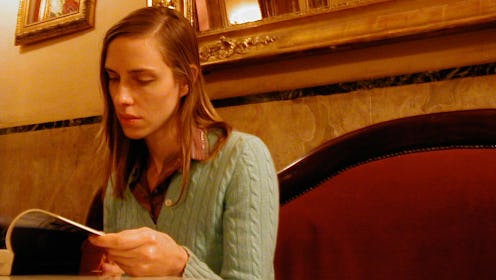
Jane Eyre keeps you up late into the night, feverishly turning the pages so you can reach that romantic climax once again (how many times has it been? You’re not telling). Or, you have some tragic lines from Wuthering Heights tattooed on your body, say “He’s more myself than I am.” Then again, could you be that rare bird who eschews the dramatic love story and instead sits in a café reading The Tenant of Wildfell Hall, underlining the passages about the abuse of women men got away with because of backward Victorian laws?
You might do all three, but one of these novels — one of these writers — speaks to you about who you really are. You feel known when you read about Jane (or Catherine, or Helen). Your true passions bubble up to the surface when you pore over Charlotte’s — or Emily’s or Anne’s — prose.
The peculiarities of the Brontë sisters and their fans have been much on my mind lately. Conversations at parties take a predictable turn. Someone asks me what I’m writing, and I mention my book: The Brontë Cabinet: Three Lives in Nine Objects . Then the question about which novel or sister I favor comes up. When the discussion becomes general, a heated argument often follows. You’d be surprised at the seriousness of this topic for some; I’ve even heard of friendships faltering over it.
What I’ve found is that the Brontë you prefer exposes private corners of your personality, perhaps more than you would care for anyone to know. So, which Brontë do you love most... and what does it say about you?
Charlotte Brontë
In your youth you read Harlequin romance novels (maybe you still do). Preferring the ones with a rake who is reformed, you identified with the clever heroine, honest and pure at heart, who changes him. The heroines in your pantheon tend toward plainness, looking like actual women look, and you feel close to them. You probably had a rough childhood, and you still feel just a tad bitter and angry about it. Still, you’ve moved on; you’ve figured out how to exorcise those ghosts (probably through years and thousands of dollars of therapy). Having built a strong sense of who you are, you still might fall for those dangerous men (or women), but you know how to either avoid the ones that can’t be changed, or to get out quick when the going gets dicey.
Emily Brontë
Favoring dark colors, you have dyed your hair at some point and have probably tried out a goth aesthetic. A fondness for body art and piercings — maybe just on others but perhaps even for yourself — comes with the territory of Emily admirers. Kate Bush, or someone like Kate Bush, forms part of your personal soundscape. In the books you love, there is a good deal of death and brutality — life is hard, and terrible things happen to good and bad people. Some of your demons still haunt you, and you subscribe to Rainer Maria Rilke’s theory about psychoanalysis, that if your devils are cast out then you could lose your angels too. You might like romance novels, but you are even more drawn to horror, science fiction, or crime. It’s probably not worth talking about the sorts of people you want to sleep with.
Anne Brontë
Your serious feminist credentials mean that some part of you disapproves of conventional romance narratives (although you still might love to read them). Cheerful and gentle by nature, you have probably never even needed therapy. Your love for your family has led you to a sweet and kind partner. You have a strong need to save lost and violent souls — not in a romantic way, but in a therapeutic one. If you don’t already have an advanced degree, you are on your way to getting one. You would be a great mother, so if you haven’t already had children, then you should probably do so, and soon, because you might die young (being too perfect for this sullied earth).
Join The Brontë Cabinet author Deborah Lutz and Bustle senior culture editor Meredith Turits in conversation at New York City's Strand Bookstore on May 18 at 7 p.m.
Images: Deborah Lutz; Wikimedia Commons (4)